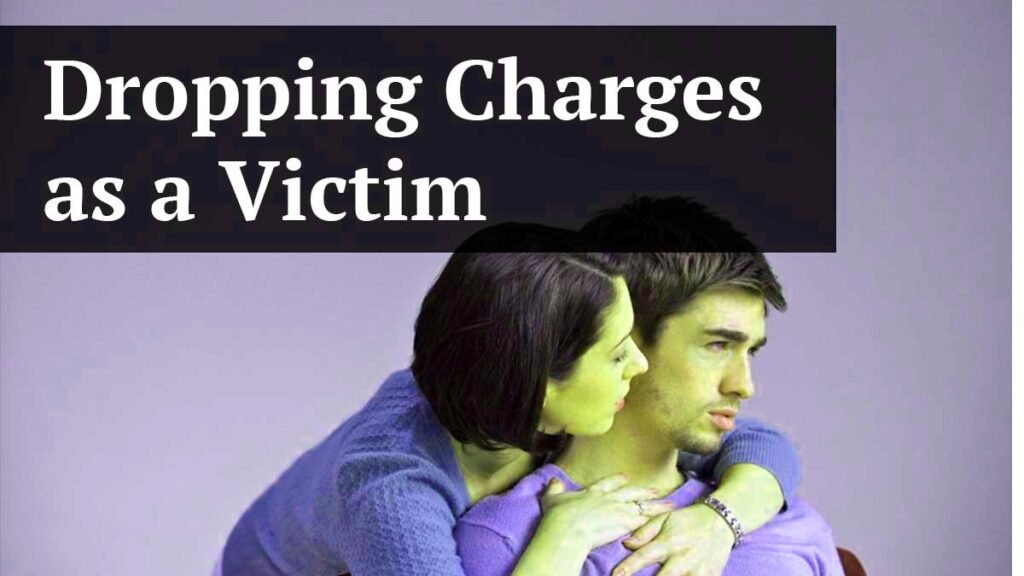Domestic violence and abuse: Crimes, Penalties, and Resources

Offenses that fall under the category of domestic violence are denoted by the use of force or threats of force between parties who are involved in a close social or familial relationship.
This article provides a definition of domestic violence as well as an examination of the common penalties and issues that arise in criminal cases involving domestic violence. In addition, the article offers guidance not only to those in need of assistance with abusive relationships but also to those who have been wrongly accused and are interested in learning how to defend their legal rights.
What Is Domestic Violence?
The terms “domestic violence” and “domestic abuse” are catch-all terms that refer to acts of violence or threats of violence that occur between people who have a specific type of relationship. They could be living together, married, or even just dating at this point. They may have a child in common. They might be related to you. They could be of any sexual orientation, including LGBTQ.
Even though anyone has the potential to be a perpetrator or victim of domestic violence, men are most commonly the ones who assault women and cause serious injuries. Domestic violence frequently takes the form of less severe forms of physical abuse, such as slapping and pushing, despite the fact that rape and murder are both examples of this type of behavior. Additionally, domestic violence can take the form of stalking. (In some states, the term “domestic violence” is also used to refer to the mistreatment of children.)
Is There a Crime Called “Domestic Violence”?
The crime of domestic violence is recognized as a separate offense in many states. Someone who strikes their spouse, for instance, could be charged with domestic violence rather than (or in addition to) other crimes such as assault and battery.
An example of a state that distinguishes domestic violence from other types of assault is the following: In the state of Wisconsin, the offense known as “domestic abuse” refers to the commission of any of the following acts against a spouse or former spouse, an adult with whom the defendant currently resides or previously did so, or the parent of the defendant’s child:
Intentional infliction of physical pain, physical injury, or illness; intentional impairment of a physical condition (such as suffocating the victim); sexual assault; or a physical act that may cause the victim to reasonably fear immediate harm of the types described above; these are all examples of intentional victimization.
(Section 968.075 of the 2022 Wisconsin Statutes.)
What Are the Penalties for Domestic Violence? Does the Abuser Go to Jail?
The consequences of committing crimes of domestic violence can vary widely from state to state. Even though the penalties for felony convictions are more severe than those for misdemeanor convictions, even misdemeanor convictions for domestic violence crimes typically bring the possibility of (if not the likelihood of) jail time.
Because perpetrators of domestic violence frequently take advantage of their victims’ trust and confidence, prosecutors typically advocate for more severe punishments in cases involving domestic violence. A prosecutor may ask for a longer period in jail or prison for an individual who attacked their spouse in comparison to an individual who committed the same act against a stranger.
Additionally, victims of domestic violence are typically afforded additional protections under the terms of their sentences. For instance, if an individual is found guilty of a crime that involves domestic violence, they may be subject to a mandatory jail sentence as well as some restraining order. In many states, judges have the authority to order convicted abusers to take part in therapeutic counseling after they have handed down their sentence. Classes on anger management and situations involving domestic violence could be included in the counseling.
Read More: Manslaughter definition: Manslaughter vs. Murder?
Charging and Prosecuting Domestic Violence: Special Challenges

When it comes to arresting suspects, filing charges, and prosecuting those responsible for domestic violence, law enforcement and prosecutors face two similar challenges.
Victims’ Reluctance to Report
The victims of domestic violence are frequently hesitant to report the abuse for a variety of different reasons. Those who have been abused may harbor the hope that their ordeal was an isolated incident and will never happen again. Alternatively, they may be concerned that reporting the violence will infuriate the abuser, which would lead to further acts of violence.
Suppose a woman and her children are financially reliant on their abuser. In that case, she may be concerned that reporting the violence will result in a reduction in the amount of support they receive from him. Because of reactions like these, which are completely understandable, many cases of domestic violence go unreported.
Victims’ Reluctance to Testify
Even when they report the abuse to the police, victims of domestic violence frequently refuse to testify against their abusers in court. This is the second challenge that arises when prosecuting cases of domestic violence.
This reluctance can be problematic due to the fact that statements made by victims to law enforcement after an incident typically cannot be used as evidence in legal proceedings. Because defendants have a constitutional right to confront and cross-examine their accusers during the trial, this rule is in place to ensure that this right is respected. If the victim does not testify, there is no way to cross-examine them. As a direct consequence of this, prosecutors are sometimes forced to drop charges of domestic violence. (However, statements made during 911 calls can occasionally be used as evidence in legal proceedings.)
Because victims are often unwilling to come forward and testify, domestic violence is one of the most difficult crimes to prosecute successfully.
Rules That Help Prosecutors Convict Domestic Violence Offenders
Unique laws govern cases involving domestic violence in some states. Under one of these rules, the prosecution is permitted to present evidence that the defendant was involved in additional instances of domestic violence. The general rule that states that prosecutors are not allowed to introduce evidence of a defendant’s prior criminal history is an exception to this rule.
Help for Domestic Violence Victims
People who have either been victims of domestic violence or who are afraid of becoming victims can get plenty of help. On this page, Resources for Victims of Crime, we list several different organizations that assist victims.
One of the things that a domestic violence organization might be able to assist you with is obtaining a protective order or restraining order, depending on the circumstances. Under the terms of this type of order, the perpetrator of the abuse is prohibited from contacting or even being near the victim (for example, within 500 feet).
Officers can usually get an immediate emergency restraining order that lasts for a few days to a week when a victim calls the police to report abuse or seek assistance. This kind of order gives the victim some breathing room so that they can make it to court and ask for an order that is in effect for a longer period. (It is important to keep in mind that restraining orders with longer terms can occasionally have their terms extended before they run out.)
If an abuser violates the terms of a restraining order—for instance, by showing up at a victim’s home or place of employment—they run the risk of being arrested and charged with a criminal offense.
Read More: How to find the best car accident lawyer in Florida?
Domestic Violence Convictions and Guns
People who have been convicted of a domestic violence misdemeanor are not allowed to possess a gun under federal law. Congress passed this law as a result of statistics showing that abusers frequently continue their abusive behavior. (Before that, the only people who were prohibited by federal law from possessing firearms were those who had been convicted of a felony.) People who are the subject of restraining orders due to domestic violence are not allowed to possess firearms under the law. (18 U.S.C. section 921 and all subsequent sections (2022); for more information, see Federal Firearms Ban for Misdemeanor Convictions.)
As a result of the fact that the laws of a number of states are similar to those of the federal ban, it is possible for a person who violates the terms of either law to be denied the right to possess a firearm.











